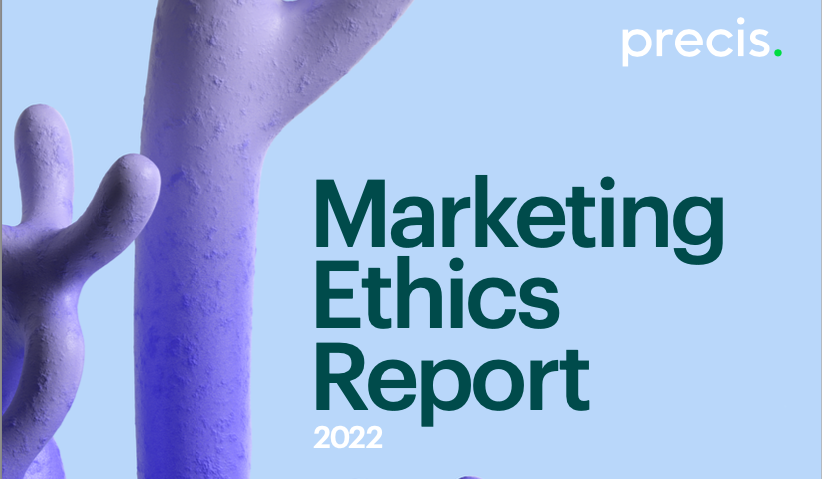Research from data-driven digital marketing agency Precis Digital, and leading global research company Forrester Consulting, has found that 80% of marketers rank customer satisfaction as the number one most important outcome for their marketing programmes. However, only 49% indicate that they would go beyond what regulations such as GDPR require, to adopt more ethical marketing practices for the customer.
In a survey of over 150 senior marketers, respondents shared their strategies and challenges in relation to data privacy, consumer expectations, transparency, algorithmic bias, and inclusivity and representation in advertising.
According to the report, marketing ethics* is a high priority in many marketing departments with more than two-thirds (67%) of the respondents stating that marketing ethics helps to achieve the dual objective of building customers’ trust and driving long-term performance. More than three-quarters (76%) go as far as to say that they are making marketing ethics a high or critical priority for their organisation. But even though the respondents state they have ethics as a high priority, the study also shows that they struggle to do what it takes to live up to their own ethical ambitions.
As the marketing industry has become more technologically advanced, the complexity faced by marketers has also increased. If brands want to get their message heard, they are largely dependent on the ad-tech industry to reach their audiences. Criticism has mounted in recent years, both within and outside the industry, about the increasing reliance on models and algorithms in ad-tech. Designed to increase performance and efficiency, the models are often ‘black-box’ (not transparent in their exact workings) – a fact that more and more advertisers are starting to worry about as they fight to tighten up their understanding of data flows and how users are targeted with adverts.
According to the study this is at the top of mind for many marketers. More than three in five (63%) say that they struggle to reduce bias in models, citing explainable AI and so-called black-box models as important topics. The topic is even the most popular priority moving forward. Eight in ten marketers (80%) answer that reducing bias in advertising models is a main priority for their company in the upcoming twelve months.
Rhys Cater, Managing Director, Precis London, said: “Complying with current regulatory standards is far from enough. If you want to make marketing a good experience for the consumer, it requires a concerted effort to make all engagements with marketing positive and fair, to treat data with integrity, and act transparently.
As algorithms in ad platforms become more powerful, and our reliance on them increases, our ability to understand and control how ads are served is diminished. As advertisers we must challenge the results that algorithms and platforms present to us with both consumer welfare and performance in mind. The classic performance example is remarketing. For advertisers the immediate short-term results can look good, but does it offer a good experience for users in the long run, does it create a good association with your brand and is its impact incremental?”
Nic Travis, Head of Paid Digital Marketing at Lloyds Banking Group, commented: “The brands that will benefit in the long run are the ones that are more prudent around the level of consent they get, their transparency and the ones that can educate the users on the value that this consent brings. After all, when the regulation tightens, they will be better prepared for those changes.”
Staffan Mörndal, Partner at the specialist growth equity investment firm, Verdane, added: “From the investor perspective, we look at a company’s ability to generate lifetime value. If a company somehow isn’t treating its customers well, there’s an increased risk they’re not going to come back. The way we see it, unethical marketing creates an unsustainable competitive advantage. Ethics has therefore become an integrated part of Verdane’s due diligence process and the way we support our portfolio companies in their marketing”
To download a copy of the report to review the full findings as well as advice, case studies, and best practise examples please click here.








